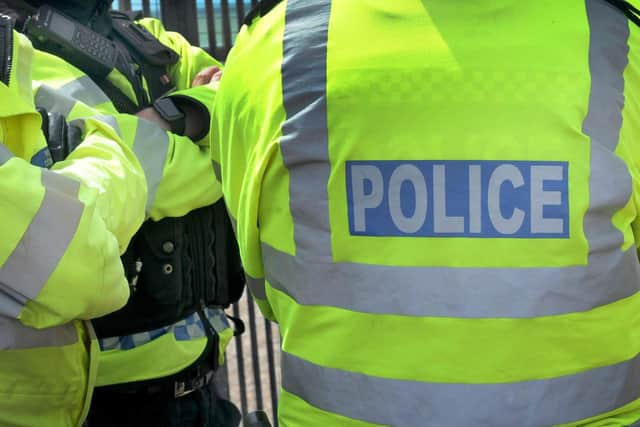Motorcyclist from Hove claimed his registration plates had been cloned to avoid speeding penalties
and live on Freeview channel 276
A motorcyclist from Hove who claimed his registration plates had been cloned to avoid two speeding penalties has been convicted.
Sussex Police said Hamed Mashayekh admitted perverting the course of justice by giving a false account to the police about the speeding offences which were three days apart.
Advertisement
Hide AdAdvertisement
Hide AdOne was in Marine Parade, Brighton and one the other was on the A270 Old Shoreham Road, Hove.


A police spokesman said: "The 32-year-old motor mechanic told police that his motorbike was not roadworthy at the time it was seen riding at 46mph in the 30mph zone. But checks revealed that his vehicle had passed an MOT and was being used repeatedly, while picture evidence also showed it had the same registration plate."
At Chichester Crown Court on February 17, Mashayekh pleaded guilty to perverting the course of justice in trying to avoid paying the penalty for speeding. He was sentenced to 100 hours of unpaid work and 20 rehabilitation activity requirement (RAR) sessions as part of a 21-week suspended prison sentence.
Mashayekh was also ordered to pay £1,500 in court costs and for a victim surcharge.
Advertisement
Hide AdAdvertisement
Hide AdSussex Police said the court was told that a Notice of Intended Prosecution was sent after the motorbike was seen travelling too fast in Marine Parade on September 14, 2019, travelling at 46mph in the 30mph zone. Then on September 17 he was seen travelling at 39mph in the 30mph zone in Old Shoreham Road.
Mashayekh, of Brunswick Square, Hove, told police he had not been on his motorbike and that the registration plates were cloned. He supplied photographs to the police which showed black tape around the number plate.
Police said he told them he had been involved in an accident on August 16 where his vehicle was left with bent forks, leaving it not roadworthy.
The police spokesman added: "His insurance company had paid for some repairs, but it was revealed that the motorcycle had then passed an MOT test just five days later, indicating that it was roadworthy and being used. In fact, automatic number plate recognition (ANPR) cameras showed the motorbike had been ridden the day after the accident.
Advertisement
Hide AdAdvertisement
Hide Ad"The rider was seen using the same distinctive crash helmet as the one on the day of the speeding offence, and it matched the one seized by police from Mashayekh.
"In addition, Mashayekh had sent pictures to the insurance company which showed the same registration plates used as at the time of the speeding offence. He subsequently sold his motorcycle after the speeding offences."
Police said when officers checked with the new owner and took the black tape off it was clearly the original number plate which was the same as the one in the speed camera photographs.
At interview he still claimed his bike had been cloned and when asked about the black tape on the number plate, he said it was to stop it falling off.
Advertisement
Hide AdAdvertisement
Hide AdFollowing the conviction, investigating officer Christopher Raynor said: “Mashayekh went to great lengths to avoid the Notice of Intended Prosecution by inventing a story his bike had been cloned. To add credence to his story he altered the appearance of his number plate by putting black tape around it.
“This sentence shows that those who attempt to deceive the police and the courts will be caught and will face prosecution.”
Mashayekh was convicted as part of Operation Pinocchio, which was launched by Sussex Police in 2016 with the following aims:
• To improve safety on Sussex’s roads by tracing and prosecuting offenders who provide false information to avoid prosecution.
Advertisement
Hide AdAdvertisement
Hide Ad• To prevent law-abiding motorists, who have been badly advised, from committing serious criminal offences by attempting to avoid speeding or red light offences.
Have you also read: Burger giant opens its first Brighton venue | SussexWorld (sussexexpress.co.uk)